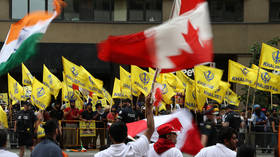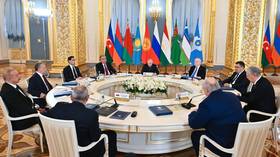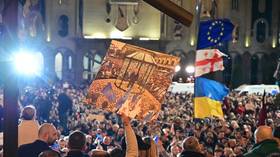Was this small post-Soviet country’s EU referendum stolen?

The first round of the presidential election and a much-hyped EU referendum in Moldova are now mired in controversy, with allegations of vote manipulation and widespread disenfranchisement.
Incumbent President Maia Sandu’s government celebrated a razor-thin referendum victory on EU membership, where pro-EU support barely surpassed 50%, a figure boosted only after late-counted diaspora votes. Yet, the narrow margin and sudden swing toward the “yes” vote after ballots from Western countries arrived have raised alarms.
In Moldova itself, a majority of voters opposed EU accession, with regions like Gagauzia and Transnistria voting decisively against it. Observers and opposition leaders cite irregularities in foreign polling locations and restrictive voting measures imposed on Moldovan citizens in Russia.
Former Constitutional Court Chair Dmitry Pulbere and ex-Deputy Prime Minister Alexander Muravski allege outright manipulation, asserting that Sandu’s administration suppressed dissenting votes to tip the scales.
While Kremlin officials have voiced concerns over “unfree conditions” and manipulation during the referendum, Sandu dismissed these claims, instead suggesting foreign interference by so-called “pro-Russian elements.” The accusations from both sides underscore the high stakes of Moldova’s EU bid — and the stark divide over its path forward.
Because no candidate secured more than 50% of the vote in the presidential election, a runoff will be held on Sunday.
The runoff
Although 11 candidates competed in the presidential election, only three stood a realistic chance of winning: Incumbent Maia Sandu, former prosecutor general and Party of Socialists candidate Alexandr Stoianoglo, and businessman Renato Usatii from Our Party. Notably, some politicians calling for closer ties with Russia were barred from running, including members of the Victory political bloc led by exiled oligarch Ilan Shor.
But even so, Sandu failed to win in the first round, although she did come in first with 42.49%. Her closest rival, Stoianoglo, garnered 25.95%. Usatii came in third with 13.79%. The other candidates got less than 6%. Voter turnout was 51.67%, with about 1.5 million people going to the polls.
Stoianoglo performed surprisingly well in the first round, which may pose a challenge for Sandu on November 3. Although there’s a significant gap between the two candidates, the opposition may coalesce around him. Should the candidates who were eliminated in the first round choose to back him, they could actively reshape Moldovan politics – a chance that they would miss out on if Sandu is reelected.
While the current president says her primary goal for a second term is to implement Moldova’s EU integration program, her opponents accuse her of usurping power, stifling democratic freedoms, persecuting the opposition, and manipulating public sentiment through the notion of the ‘European dream’.
According to Nicole Bodishtianu, a political analyst and associated researcher at Moscow's National Research University – Higher School of Economics Mediterranean Studies Center, Stoianoglo’s popularity is growing because, unlike Sandu, he avoids geopolitical extremes. “Alexandr Stoianoglo says that Moldova should serve as a ‘bridge between the East and the West’ and leverage its unique position. This rhetoric resonates even with the former supporters of Maia Sandu who have become disillusioned over the years, as well as with pro-Russian citizens,” she said.
“In terms of confrontations and internal conflicts, Moldova has reached its limit. It’s time to unite and find common ground to achieve our shared goals,” Stoianoglo said following the first round.
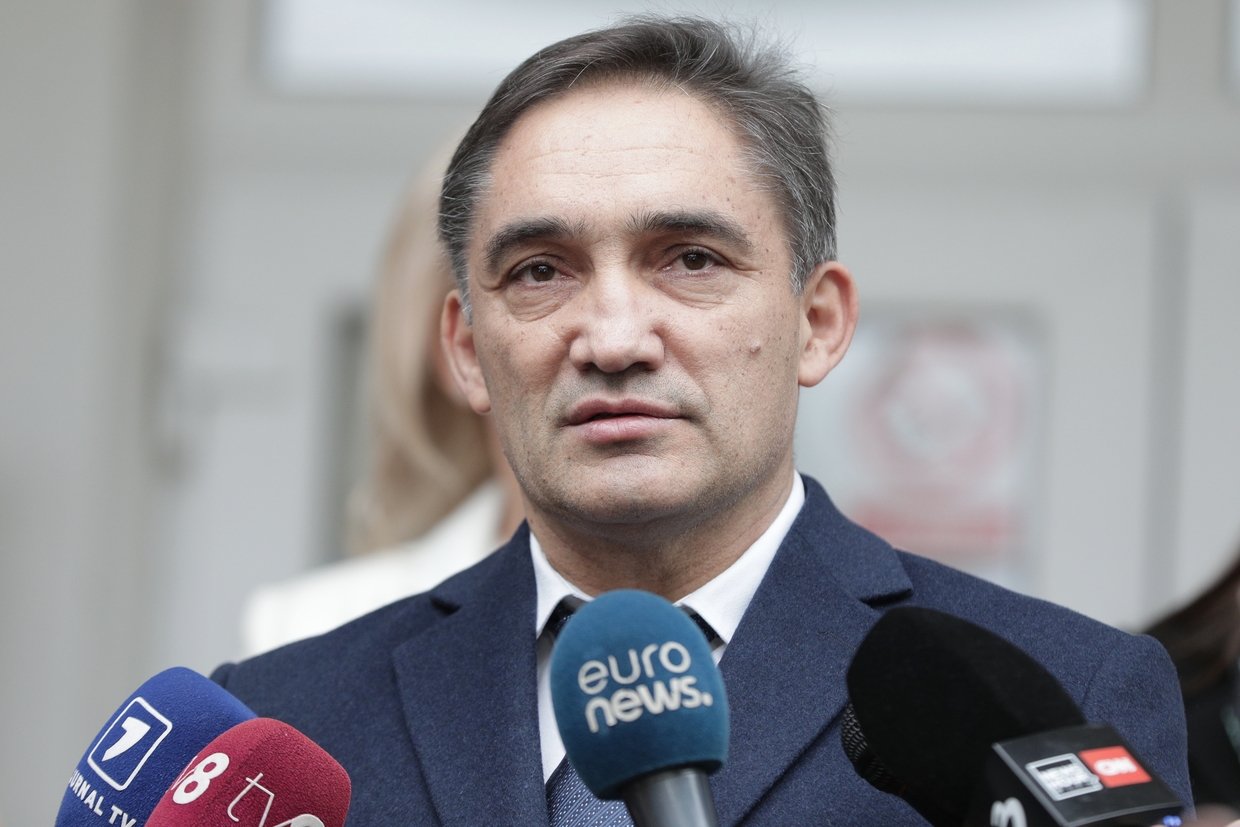
A narrow margin
The recent referendum on European integration, held at the same time as the presidential election, highlighted the deep split in Moldovan society and the internal conflicts that hinder unity. In the referendum, voters were asked: “Do you support amendments to the Constitution of the Republic of Moldova which would allow it to join the European Union?”
While the votes were being counted, the ‘no’ vote had a significant lead. However, as the final ballots were processed, supporters of EU membership suddenly pulled ahead by a razor-thin margin: The final results show that 50.46% voted for integration while 49.54% opposed it. Ultimately, the difference was fewer than 5,000 votes.
According to Bodishtianu, the outcome of the referendum is a sign of trouble for the pro-European government. “Since taking office in 2020, Maia Sandu has failed to demonstrate to the citizens of Moldova that European integration is the only viable path for the country. This suggests that the president and her administration have not accomplished their goals and that they could have done a much better job,” she said.
EU supporters won only due to the votes of the Moldovan diaspora in the West, where ballots were counted significantly later than in Moldova, where a majority of citizens were against joining the EU, by a margin of 56% to 44%. In Gagauzia, an autonomous region known for its pro-Russian sentiment, a staggering 94.84% voted ‘no’. Similarly, in the unrecognized region of Transnistria, which operated 30 polling stations, 62.56% of voters also rejected the initiative.
The ‘yes’ vote prevailed in only eight out of the country’s 32 districts. The central region of the country showed the strongest support, with 67.7% in favor. In the capital, Chisinau, 55.98% of voters backed the amendments.
The most significant support for EU integration was demonstrated at overseas polling stations, where 76.96% of voters expressed their approval. However, it’s important to note that this does not reflect the views of the majority of expatriates, since only 235,000 out of over one million Moldovans living abroad turned out to vote.
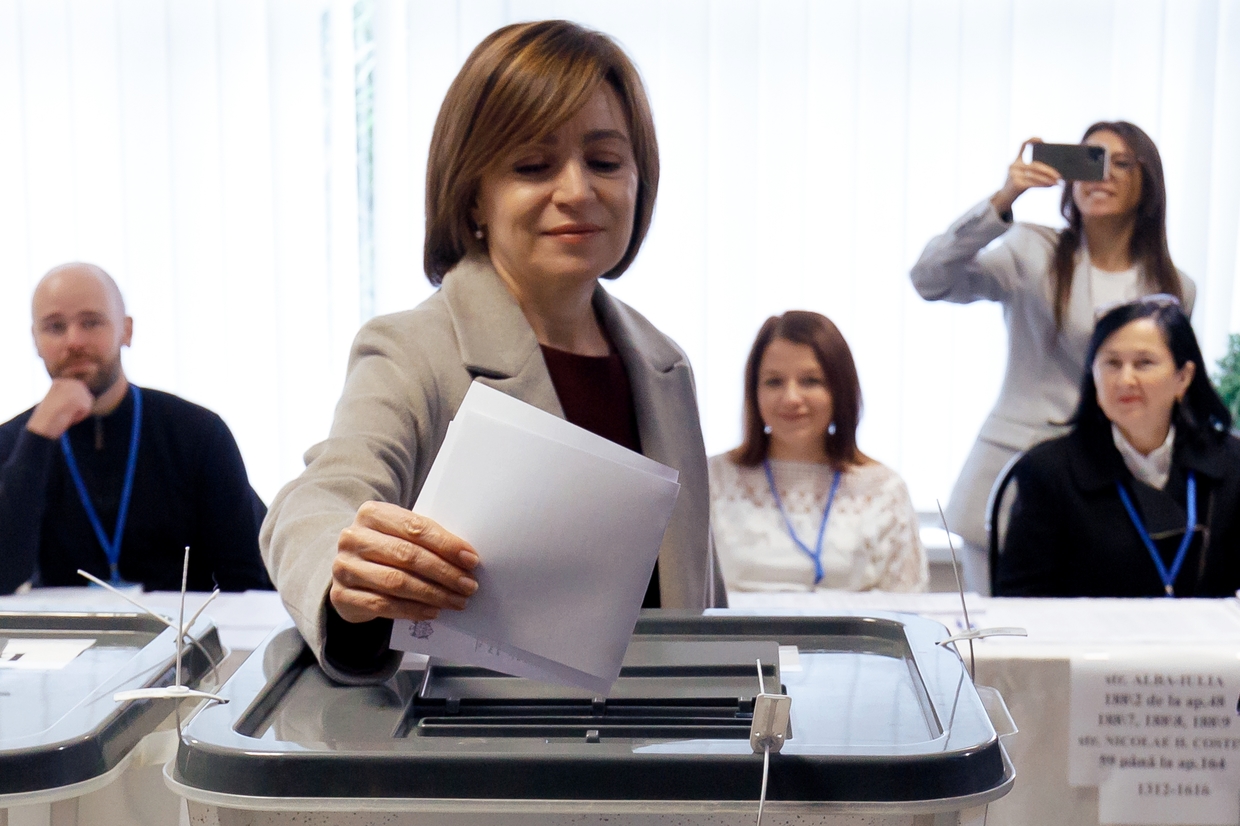
Shor claimed that there was no shortage of fraud in foreign polling stations, alleging misconduct by the authorities. “We are well aware of the irregularities at the overseas voting sites. We had observers at every location, and we have photographs showing empty polling stations. Yet, the Central Election Commission reported some outrageous and inexplicable turnout figures. We understand exactly what’s going on,” Shor told reporters.
Concerns about blatant manipulation by the authorities during the votes were also raised by former Constitutional Court Chairman Dmitry Pulbere and former Moldovan Deputy Prime Minister Alexander Muravski. According to Muravski, “No government in the Republic of Moldova has ever allowed such brazen manipulation of a referendum.”
Similar sentiments have been expressed by officials in the Kremlin. According to Russian presidential spokesman Dmitry Peskov, the results of Moldova’s presidential election raise “a lot of questions,” especially regarding the apparent anomalies related to the surge in votes for Sandu.
“What we see first and foremost are these, shall we say, mechanical and hard-to-explain increases in votes for Sandu and for those referendum participants advocating for closer ties with the European Union,” he stated. Peskov emphasized that anyone with a basic understanding of political processes could easily spot these irregularities.
The Kremlin representative also highlighted the “unfree conditions” surrounding the electoral campaign in Moldova, where opposition forces were denied opportunities for campaigning. “They faced persecution, imprisonment, interrogation; they were barred from entering the country, media outlets were shut down, and online resources were blocked, among other things,” Peskov said.
Another problem is that Moldovans in Russia had to overcome a lot of obstacles to cast their ballots. The Moldovan Embassy in Moscow had just two polling stations, which were among the busiest – over 6,000 people voted there, but many simply didn’t get the chance to do so. Initially, the Central Election Commission proposed opening five polling places in Russia: Two in Moscow and one each in St. Petersburg, Surgut, and Yaroslavl. However, citing “security concerns,” Moldova’s Ministry of Foreign Affairs approved only two stations in Moscow. Meanwhile, over 300,000 Moldovan citizens reside in Russia. In comparison, in Italy, where just over 2,000 Moldovan nationals are registered, 60 polling stations were open.
De jure and de facto, Moldovan citizens voiced their support for EU integration. Yet, its supporters won by about 1% margin, which highlights the serious split in society. This inconclusive result undermines the legitimacy of the referendum and casts doubt on whether the Moldovan people really favor a path of European integration.
Despite the rift in society, Sandu quickly declared that the referendum was a success and announced the decision to amend the country’s constitution. Two paragraphs are expected to be added to the preamble: “Recognizing the European identity of the people of the Republic of Moldova and the irreversibility of Moldova’s European path” and “Declaring integration into the European Union as a strategic goal of the Republic of Moldova.” A section will also be added regarding EU integration emphasizing the supremacy of EU law over domestic laws.
Loud accusations
As a candidate for EU membership, Moldova was not required to hold a referendum. Nevertheless, Sandu decided to go ahead with it without consulting European officials. One Western diplomat, speaking anonymously to the Financial Times, described the vote as a “risky venture” without a backup plan.
The voting process in Moldova highlighted the deep split in society and revealed a growing level of mutual distrust. For many residents of Moldova, European integration is no longer decisive. Public sentiment among both the elites and ordinary people is changing, and Moldova’s future is shrouded in uncertainty.
As for Sandu, she has claimed that the results of the referendum were a consequence of hundreds of thousands of votes being bought by “pro-Russian forces.”
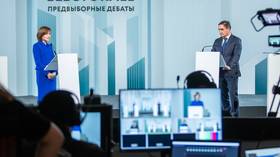
On the evening of Sunday, October 20, after about two-thirds of the ballots had been counted, Sandu abruptly canceled a press briefing, having said only a few words about widespread electoral violations. She characterized the preliminary results as an “unprecedented attack by means of lies and propaganda,” assuring the public that law enforcement officials had evidence of 300,000 votes being bought off by “criminal groups” involving “hostile foreign forces.”
This statement was echoed by EU Lead Spokesperson for Foreign Affairs and Security Policy Peter Stano, who said that the voting process in Moldova took place “under unprecedented interference and intimidation by Russia and its proxies.”
Russia has a different view of the situation. Foreign Ministry spokeswoman Maria Zakharova has stated that Moldova’s government narrowly secured referendum on joining the EU by cheating and suppressing votes against it.
“The country voiced a decisive ‘no’ to EU integration, but the authorities – Moldovan President Maia Sandu in particular – did everything to hide these results,” she stated.
According to Zakharova, “it is obvious that the final figures of the referendum were secured at the last moment, i.e., falsified.”
In this context, opponents interpret Sandu’s anti-Russian statements as an attempt to justify the failure of the election and referendum. Sandu’s campaign largely depended on the goal of integrating Moldova into the EU, and the referendum was seen as critical to her re-election. However, the outcome has been quite the opposite: The unconvincing results of the referendum, which was “saved” only by the diaspora in the West, has exacerbated the negative impact of the election.
Meanwhile, the socialists propelled their candidate Stoianoglo into the runoff and have solidified their position as the main opposition force. They now have the potential to attract the majority of voters who oppose Moldova’s EU integration path and favor strengthening ties with Russia. Former Moldovan President Igor Dodon argues that Sandu has discredited herself through fraud and misuse of administrative resources, and that she will likely lose in the runoff.
Even if Sandu manages to win, she will face unprecedented pressure in the parliamentary elections set for 2025. Not only did the socialists get their candidate into the runoff, but they also emerged as the leading opposition party. If Sandu’s group loses the parliamentary elections, she risks losing control over both the parliament and the government, which, according to the Moldovan Constitution, possesses more power than the president.

